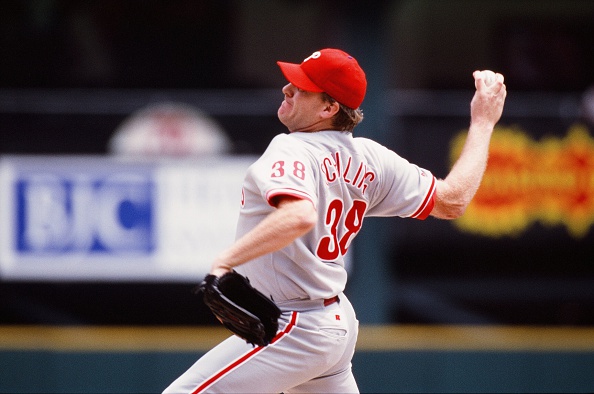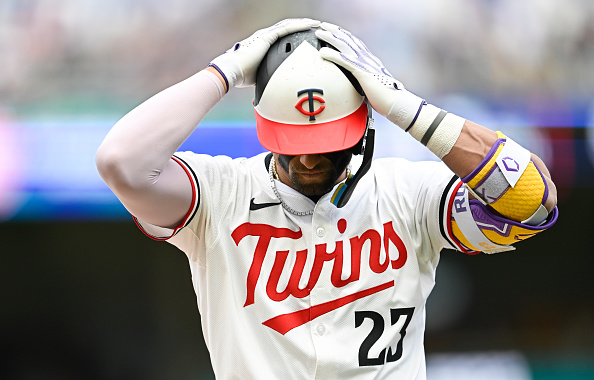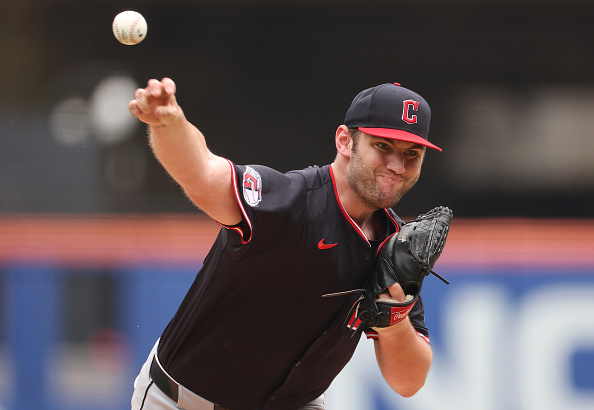Curt Schilling is on the Hall of Fame ballot for the ninth time this year after falling just short last year with 70 percent of the vote. It’s time to take a deeper look at his numbers as a player (which is what the voters should do) to see if he has a legitimate case.
Make sure to check out all of our other MLB Hall of Fame Cases.
Schilling had a 20-year career between the Baltimore Orioles, Houston Astros, Philadelphia Phillies, Arizona Diamondbacks, and Boston Red Sox. His online presence and views have caused plenty of controversy over the years, but should not affect the voting. More on that later.
Career Summary
Curtis Montague Schilling was drafted by the Boston Red Sox in the second round of the 1986 MLB January Draft-Regular Phase, out of Yavapai College (Prescott, AZ). Schilling spent two-and-a-half years in the Red Sox minor league system before being traded to Baltimore. He then made his major league debut in 1988 with the Orioles. He spent two seasons in there before then signing with the Astros following the 1990 season. Schilling was with Houston for one year before he was traded to the Phillies in April 1992.
Breakout in Philadelphia
While he struggled with both the Orioles and Astros, Schilling got the chance to start for the Phillies. He was able to break out in a big way in his first season in 1992. He turned into the ace of the Philadelphia staff, leading the team in wins (14), ERA (2.35), strikeouts (147), and shutouts (4). The right-hander also led the entire league with a 0.990 WHIP. Schilling was a huge key to the Phillies’ pennant run in 1993. Despite not receiving a decision in either of his two starts in the National League Championship Series against the Atlanta Braves, Schilling was named the MVP after the Phillies outlasted the Braves in the series. He struck out 19 Braves hitters over the two starts, including the first five in Game 1, an NLCS record.
In Game 5 of the World Series against the Toronto Blue Jays, Schilling pitched a gem with the Phillies facing elimination. He pitched a five-hit shutout as Philadelphia won the conest 2-0. Schilling was named to his first All-Star Game in 1997. He followed that up with another All-Star nod in 1998 and was named the starter in 1999. He finished fourth in NL Cy Young voting in 1997 after setting the Phillies single-season strikeout record with 319. Schilling led the majors with 15 complete games and 268.2 innings pitched in 1998. He also led the NL with 300 strikeouts and was the Phillies leader in wins, complete games, shutouts, and ERA among starters each season from 1997 to 1999.
Traded to the Desert
With Schilling putting up great numbers but the team not performing well, he requested a trade to a more competitive team in 2000. The result was being traded to the Arizona Diamondbacks prior to the trade deadline. He left Philadelphia towards the top of Phillies all-time ranks. He finished sixth all-time with 101 wins, 20th in ERA (3.35), sixth in games started (226), 13th in shutouts (14), fourth in strikeouts (1,554), and eighth in innings pitched (1,659.1).
Schilling was the runner-up for the Cy Young Award to teammate Randy Johnson in each of his first two full seasons in Arizona and tenth in MVP voting both years, as well. He led the majors in strikeout-to-walk ratio in those seasons while leading the NL in FIP (2.40) and WHIP (0.968) in 2002. In 2001, he also led the majors with 22 wins. That season, Schilling was dominant in the playoffs as he went 4-0 with a 1.12 ERA. He went 1-0 in the World Series with a 1.69 ERA and 26 strikeouts over 21 innings. The World Series MVP was awarded to both Schilling and Johnson. Schilling was honored with the Roberto Clemente and Branch Rickey Awards for that season.
Off to Boston
The Diamondbacks traded Schilling to the Boston Red Sox in November 2003 which reunited him with Terry Francona, his manager during his final four years with the Phillies. He became the fifth Red Sox pitcher to win 20 or more games in 2004, as he went 21-6. He made his sixth and final All-Star Game that season while earning another second-place finish for the Cy Young.
Game 6 of the 2004 ALCS entered Schilling into Boston lore with the “bloody sock” game. With the Sox facing elimination for the third straight game, Schilling pitched on an injured ankle which caused blood to visibly soak his white sock. He won the game and forced a Game 7, which the Red Sox went on to win to become the first and only team since to come back from a 3-0 series deficit. He also won Game 2 of the World Series against the St. Louis Cardinals, pitching seven innings through a bloody sock yet again. Boston swept the series which broke the “Curse of the Bambino” and the second bloody sock was placed in the Baseball Hall of Fame.
Schilling would pitch for one more season after signing a one-year contract with the Red Sox. He also re-signed with Boston following that year, but would miss all of 2008 with a shoulder injury. He then officially announced his retirement in March 2009 after 20 seasons. His 3,116 career strikeouts currently sit 15th on the all-time list.
Pros
Schilling is one of the most consistent pitchers in history. He earned his 200th career win in 2006 and collected his 3,000th strikeout in August that year. He has the highest strikeout-to-walk ratio (3,116-711) of any pitcher in the 3,000 strikeout club and is one of four pitchers (Fergie Jenkins, Greg Maddux, Pedro Martinez) to reach 3,000 strikeouts without 1,000 walks. His performances in the playoffs are a huge part of his case. He retired with an 11-2 career postseason record with a 2.23 postseason ERA and 120 to 25 strikeout-to-walk ratio. Schilling is tied for third with three 300-strikeout seasons (1997, 1998, 2002).
Cons
Schilling spent most of his early years pitching for bad Phillies teams, which obviously was not his fault. But he only earned 216 career wins which is well below the 300-win benchmark for Hall of Fame pitchers. This is not much to knock him on, as wins are not a legitimate pitching statistic. He was never the best starting pitcher on his own team during his peak as that was Randy Johnson when he was in Arizona. But that doesn’t make him less Hall of Fame worthy.
Verdict
Schilling’s presence on Twitter and the person he is has nothing to do with his case for the Hall. The so-called “character clause” that the voters roll with is pedestrian. They shouldn’t be the gatekeepers of integrity and there are already players in the Hall of Fame who were not cover boys for integrity. Schilling was an outstanding pitcher and is very much deserving of being voted in based on his on-field merit only. The Hall of Fame is a museum and all of the on-field histories should be enshrined. The rest of the stories can be filled in by teachers and parents who take their kids to Cooperstown.
Schilling is a Hall of Famer and should have already been voted in long ago.
Check us out on our socials:
Twitter: @PTSTNews and @TalkPrimeTime
Facebook Page: Prime Time Sports Talk
Join our Facebook Group: Prime Time Sports Talk
Instagram: @ptsportstalk
Follow Alex Kielar on Twitter @AlexKielar
Main Image Credit:
Embed from Getty Images








One Response